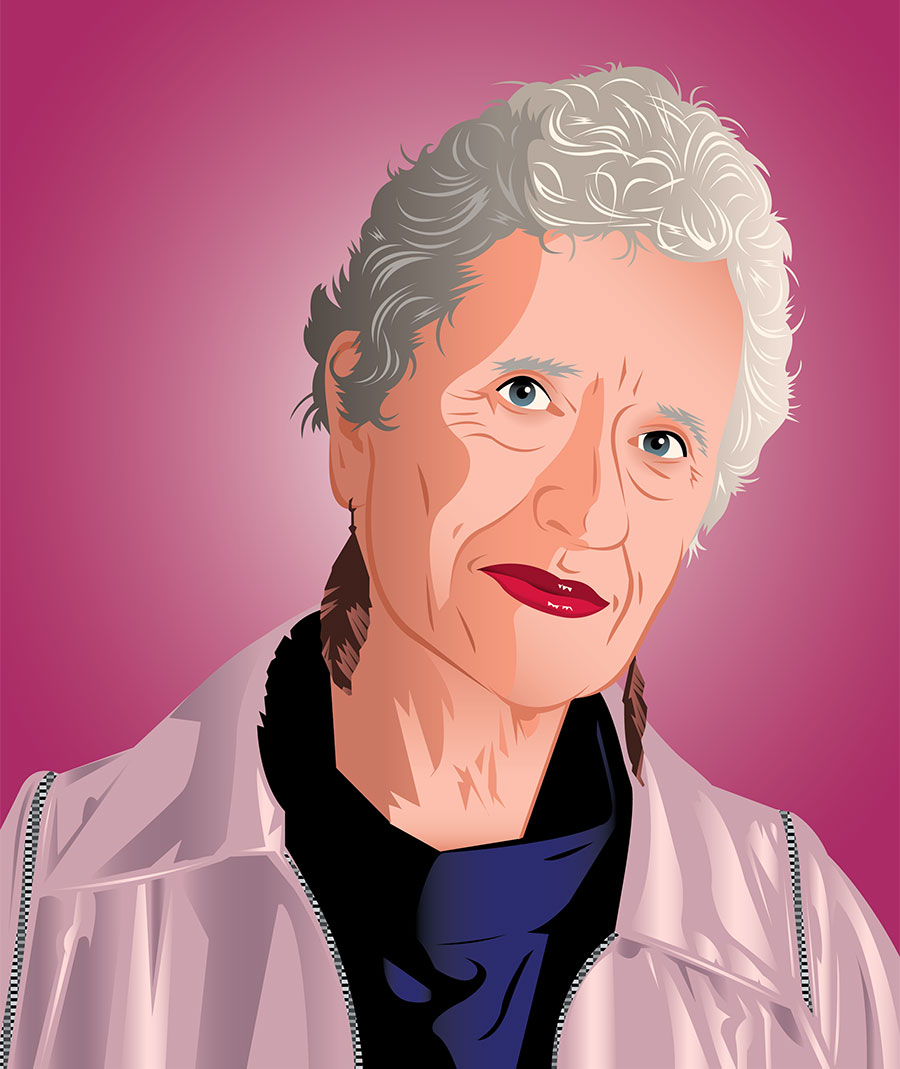■ I worked downtown at CNA Insurance for a guy who was not a nice character. It was October, and I was looking down at Grant Park. The trees are dead. I’m dead. I’m listening to him. My lips are saying, “Oh yeah, great idea,” and the balloon over my head is saying, “You unspeakable, unprintable turkey bird.” And my character, V.I. [Warshawski], came to me then. V.I. says what’s in that thought balloon, because she doesn’t care if she’s fired or what people think.
■ Philip Marlowe made me want to create a woman detective. In six of Raymond Chandler’s seven books, it’s a woman who presents herself sexually, who’s behind every wicked thing that happens. And I thought, I’m gonna turn the tables.
■ When I worked for CNA, my territory was Detroit, Newark, D.C., and Long Island. I had to fly at night for the cheapest fares, so I was always landing in these places at midnight. One of my stepsons, Tim, who’s quite a skilled machinist, made me brass knuckles. I was flying back from Detroit, and I forgot to put them in my checked luggage. They were in my handbag, and they’re a felony weapon. They took me into a little room to interrogate me. They let me go, but they confiscated the knuckles. Tim made me a better set: They’re solid brass with a mahogany handle. They have my name on them in reverse letters.
■ I took a break from V.I. after the eighth book. I thought, I’m getting too addicted to success. And I regret it, because it did affect my sales. But I’m glad I put the brakes on before I stopped having any integrity about what I was saying and doing just to feed the success machine.
■ I should not be as outspoken as I am and at the same time shy away from confrontation. I speak first and count the bodies afterwards.
■ My 50s were my best decade. Physically, mentally, creatively. They came to an abrupt end when I was badly injured in a car crash that left me with a lot of residual damage in my cervical spine. I had two years where I had to relearn how to walk. I was just angry all the time. I wish I could write the kind of memoir where that was my great spiritual awakening, where I learned to be a deeper, more sensitive person. No, I was just an angry person. It’s only been after the fact that I’ve come to see I was really fortunate in how I was able to recover.
■ My mother was an alcoholic, so alcohol’s not something I tend to romanticize. I have four brothers, and alcohol has been a real struggle for two of them. It’s the luck of the draw. I was in my 30s before I could finally believe I was OK.
■ When I was just coming up, I was doing something unusual and different. And Sue Grafton was doing something similar, although less sharp edged. We got a ton of attention. I’m not doing anything different now, but it’s like, Oh, I’m just ordinary now? How did that happen? That’s been a hard adjustment.
■ I was named for two great-grandmothers murdered in the Holocaust. So I always imagine, in any difficult situation, that someone’s going to kill me. Now that I’ve reached 77, without having been murdered after provoking a lot of people, I feel a lot safer.



